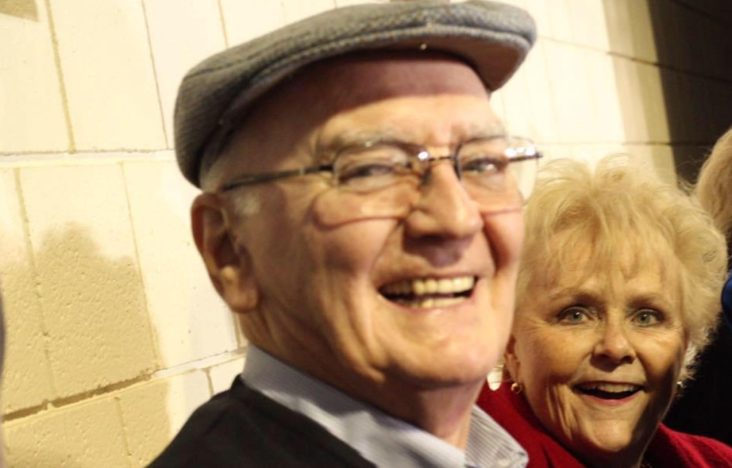Pioneering Fayetteville physician, former state legislator Dr. Morriss Henry dies at 92
by September 9, 2024 6:23 pm 902 views

Dr. Morriss Henry and his wife, Ann.
Dr. Morriss Murphey Henry, a pioneer in eye care, former state legislator, and longtime community servant, died Sunday at the age of 92.
Henry, born in Fort Smith, was the son of two parents who served as doctors. His mother, Dr. Louise McCammon Henry, was the state’s first female ophthalmologist. Morriss Henry moved to Fayetteville to open a branch of the family eye clinic and he served in that capacity throughout his professional career.
He graduated from Hendrix College and the University of Tennessee Medical School, and then completed his ophthalmology residency at Harvard’s Massachusetts Eye and Ear Infirmary. Henry served as a captain in the U.S. Air Force from 1959 to 1961, where he led a military eye clinic in Bitburg, Germany.
He was an early pioneer in laser eye surgery in Arkansas, quietly contributing to advancements in ophthalmology. His efforts extended beyond his clinic as he helped establish the Jones Eye Institute, and he was instrumental in bringing a medical school to Northwest Arkansas through his work on the UAMS Northwest advisory committee. As an adjunct professor at the University of Arkansas for Medical Sciences, Henry regularly traveled to Little Rock at his own expense to mentor the next generation of physicians. He served as President of the Arkansas Medical Society and the Jones Eye Institute Board.
Henry was married to Ann Rainwater Henry, who worked for the University of Arkansas and retired as an associate dean. The Henrys, both of whom also earned law degrees, were very involved in politics, environmental conservation and the Fayetteville Public Library. Ann Henry was the Democratic nominee for Congress in 1996.
Morriss Henry served as Washington County Coroner (1964–1966), State Representative (1967–1972), and State Senator (1972–1984). His legislative efforts aimed to improve rural healthcare, expand emergency services, and strengthen environmental protections, particularly around wastewater regulations. He championed tougher DWI laws, supported the creation of the state medical examiner’s office, and advocated for causes like organ donation, public television, and historic preservation.
One of Henry’s most meaningful legislative achievements was his role in preserving the 12,000-acre Hobbs Estate near Beaver Lake. His efforts protected water quality and ensured opportunities for outdoor recreation for generations to come.
Henry was also a founding board member of the Arkansas Nature Conservancy and a lifelong supporter of the Fayetteville Lions Club, where he helped fund vision programs for over 60 years.
In addition to his wife, Ann, Henry is survived by his daughter Dr. Katherine Henry Baltz, and two sons, Dr. Paul Henry and attorney Mark Henry.
A celebration of his life will be held at St. Paul’s Episcopal Church in Fayetteville on Saturday, September 28th at 10:30am. The family has requested donations to The Nature Conservancy of Arkansas or a charity of your choice.
If you wish to read more about his legacy, click here.
